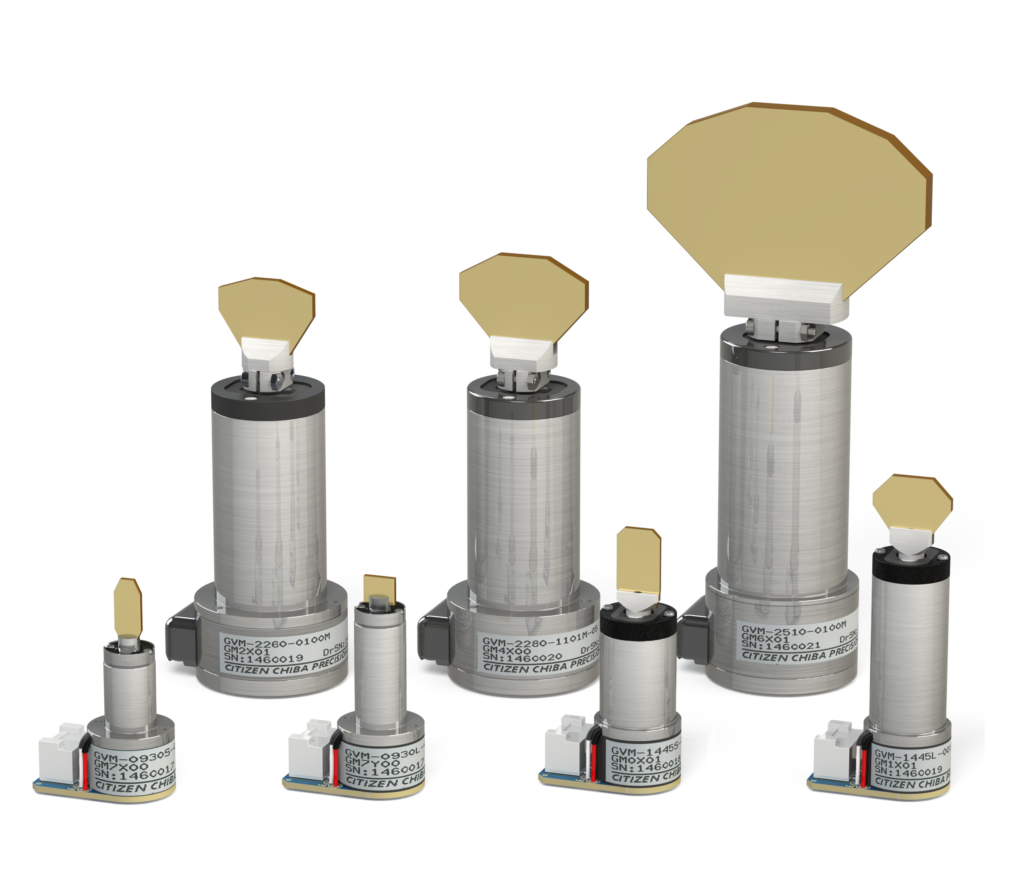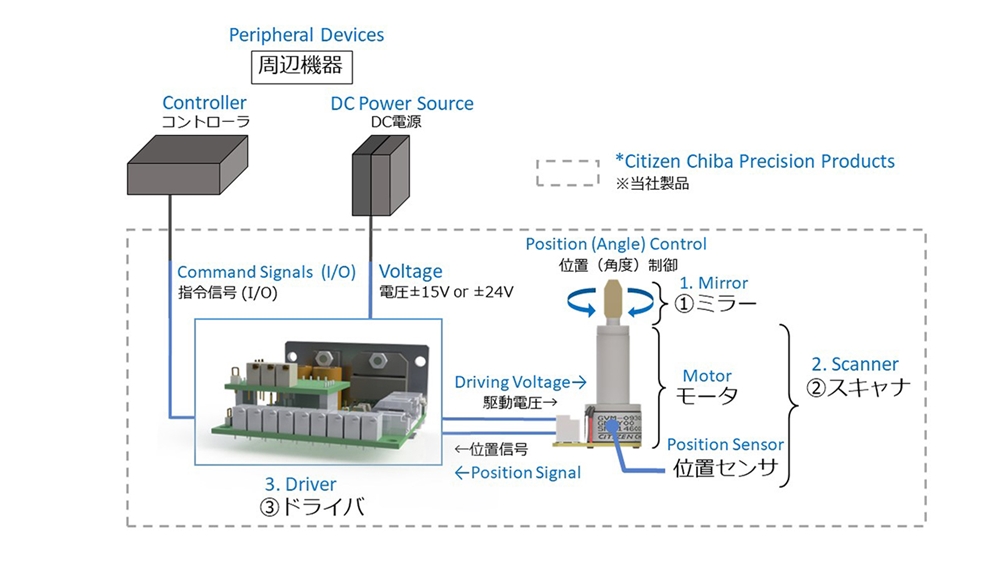Innovative Uses a Galvanometer Scanner in Industrial Automation and Control
Wiki Article
How a Galvanometer Scanner Improves Efficiency in Laser Scanning Technologies
The combination of galvanometer scanners in laser scanning innovations stands for an essential advancement in accuracy engineering. By assisting in exact and fast adjustments of laser beam instructions, these tools significantly improve operational efficiency throughout numerous applications, from clinical imaging to industrial inscription.Understanding Galvanometer Scanners
A galvanometer scanner is an innovative gadget that leverages electromagnetic principles to attain precise angular motion of mirrors or various other reflective surfaces. These scanners run through the communication of an electrical present and an electromagnetic field, making it possible for precise and fast placing. This innovation is important in applications requiring high-speed scanning, such as laser engraving, optical interaction, and medical imaging.
Galvanometer scanners are usually defined by their rapid action times and high angular resolution, making them suitable for applications that demand rapid movements and exact placing. Their reliability and efficiency make them an important part in contemporary laser scanning modern technologies, contributing dramatically to innovations in various areas, including manufacturing, health care, and telecommunications.
Device of Laser Beam Control

The control device relies on closed-loop comments systems that continually keep track of the beam of light's setting. The signals from optical sensors offer real-time data to the control system, permitting quick changes to preserve accuracy. This is crucial in applications where also minor deviations can compromise the quality of the check or etching.
In addition, the galvanometer's feedback time is extremely important; high-speed motors make it possible for speedy movements, guaranteeing that the laser light beam can swiftly map complex patterns or execute complex procedures. The assimilation of electronic signal processing better boosts the responsiveness and accuracy of the galvanometer scanner. In general, the mechanism of laser beam control with galvanometer scanners exhibits the blend of sophisticated design and innovation, generating high-performance results in laser scanning applications.
Benefits of Improved Precision
Boosted precision in laser scanning technologies offers considerable advantages throughout different applications, from industrial production to medical treatments. The combination of galvanometer scanners enables very exact light beam positioning, which is important for tasks needing meticulous information. This enhanced accuracy ensures that the laser can target certain areas with marginal discrepancy, causing exceptional quality outcomes.
In commercial contexts, specific laser scanning leads to boosted item uniformity and lowered material waste. In clinical applications, the precision of laser treatments can considerably influence client end results.
Furthermore, improved precision helps with advanced applications such as 3D imaging and microfabrication, where also minute inaccuracies can result in significant errors. By giving repeatable and reliable laser positioning, galvanometer scanners add to the general efficiency and effectiveness of laser systems. In summary, the advantages of enhanced accuracy not just enhance operational efficiency but also raise the criteria of high quality and safety and security in various sectors.
Applications in Different Industries
The flexibility of galvanometer scanners in laser scanning innovations extends across several industries, each taking advantage of the accuracy they provide. In the medical area, these scanners are essential in applications such as laser surgical procedure and imaging, permitting very precise targeting of cells while reducing damages to bordering areas - galvanometer scanner. Their quick feedback and great resolution are critical in generating high-quality outcomesIn the manufacturing sector, galvanometer scanners enhance procedures like laser inscription and cutting. Their ability to swiftly direct laser light beams onto surfaces allows reliable production lines, enhancing rate and precision in creating detailed designs or elements.
The auto sector additionally takes advantage of galvanometer innovation for quality control and inspections (galvanometer scanner). By utilizing high-speed scanning, producers can find issues in assemblies or materials, making sure that items satisfy rigid criteria
Moreover, in the entertainment field, galvanometer scanners are employed in laser light programs and displays, providing vibrant visual experiences with accurate control over laser motions.
Future Patterns in Laser Scanning
Emerging modern technologies are positioned to reinvent the landscape of laser scanning, with galvanometer scanners at the leading edge of this improvement. As sectors increasingly demand accuracy and performance, the development of galvanometer technology will certainly drive substantial innovations in laser scanning applications.Future trends indicate an expanding More Bonuses assimilation of expert system and artificial intelligence algorithms, which will boost information refining abilities and automate decision-making in real-time. This synergy will enable much more sophisticated analysis of checked data, bring about improved accuracy in applications such as 3D modeling and self-governing navigating.
In addition, the miniaturization of components and the growth of advanced materials will add to article source lighter, much more mobile laser scanning systems. This mobility will certainly increase the reach of laser scanning modern technologies right into previously inaccessible settings, such as remote surface and detailed architectural spaces.
The increase of augmented fact (AR) and online truth (VR) applications will certainly likewise shape the future of laser scanning. By incorporating galvanometer scanners with AR and VR, customers will certainly take advantage of immersive experiences that improve visualization and job preparation.
Verdict
To conclude, galvanometer scanners play a crucial duty in enhancing laser scanning modern technologies via their specific control of beam direction and quick angular changes. The integration of advanced responses systems and optical sensing units substantially enhances functional speed and accuracy, causing boosted outcomes in applications such as laser engraving and medical imaging. As sectors increasingly take on these innovations, the recurring developments in galvanometer scanner designs are anticipated to further raise efficiency criteria and expand application opportunities.The combination of galvanometer scanners in laser scanning technologies stands for an essential development in precision engineering. On the whole, the mechanism of laser beam of light control with galvanometer scanners exhibits the combination of sophisticated engineering and technology, yielding high-performance end results in laser scanning applications.
By offering repeatable and dependable laser positioning, galvanometer scanners contribute to the total performance useful content and effectiveness of laser systems.The versatility of galvanometer scanners in laser scanning modern technologies extends across numerous markets, each benefiting from the accuracy they provide.In verdict, galvanometer scanners play an essential role in optimizing laser scanning innovations via their precise control of light beam instructions and fast angular modifications.
Report this wiki page